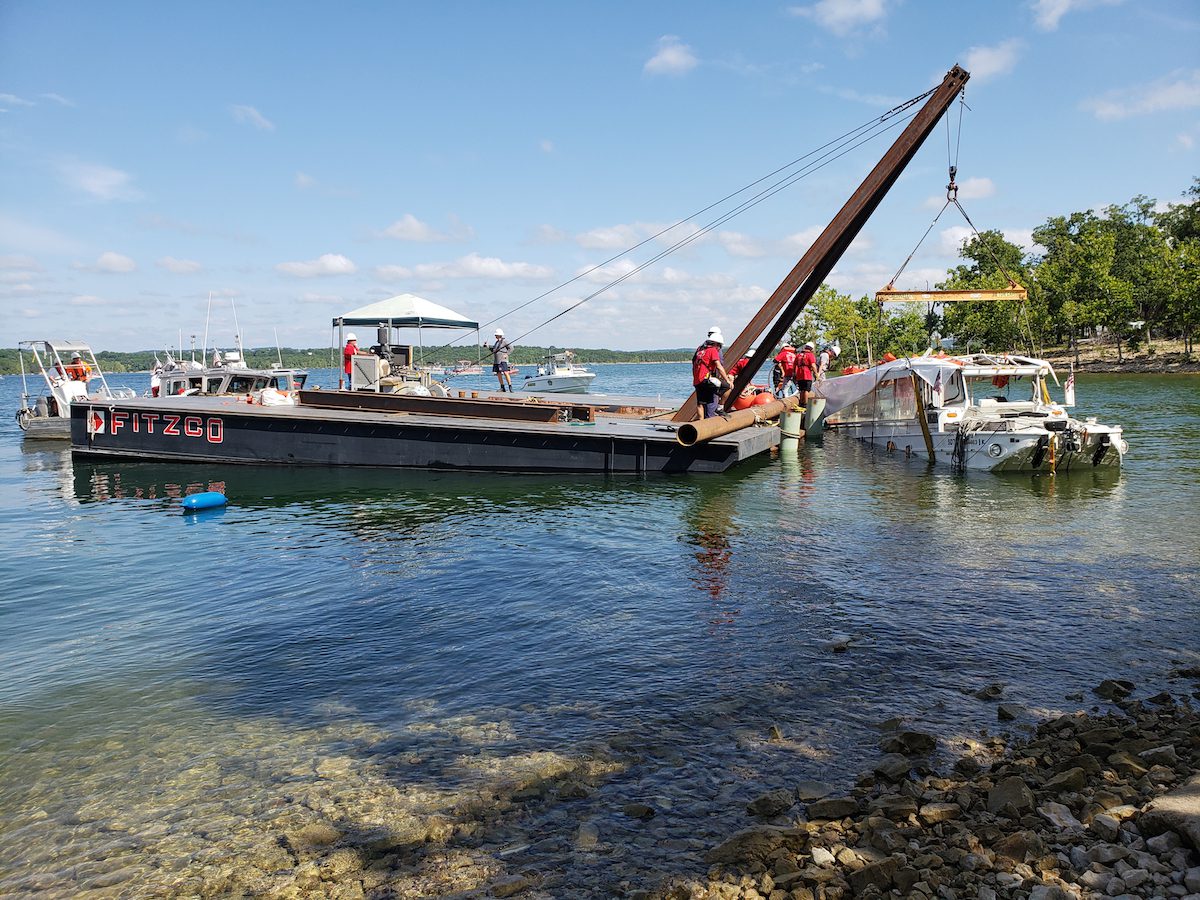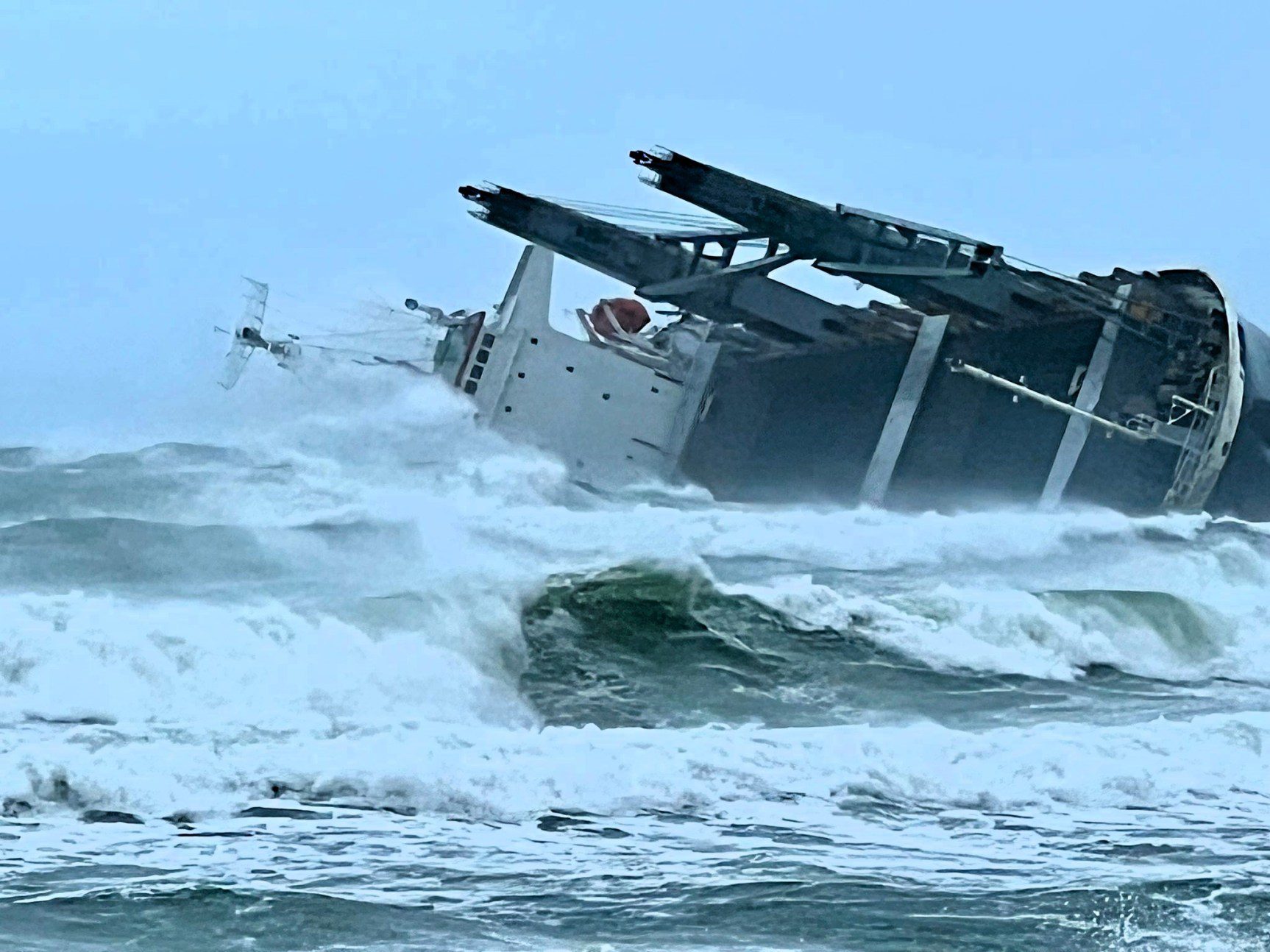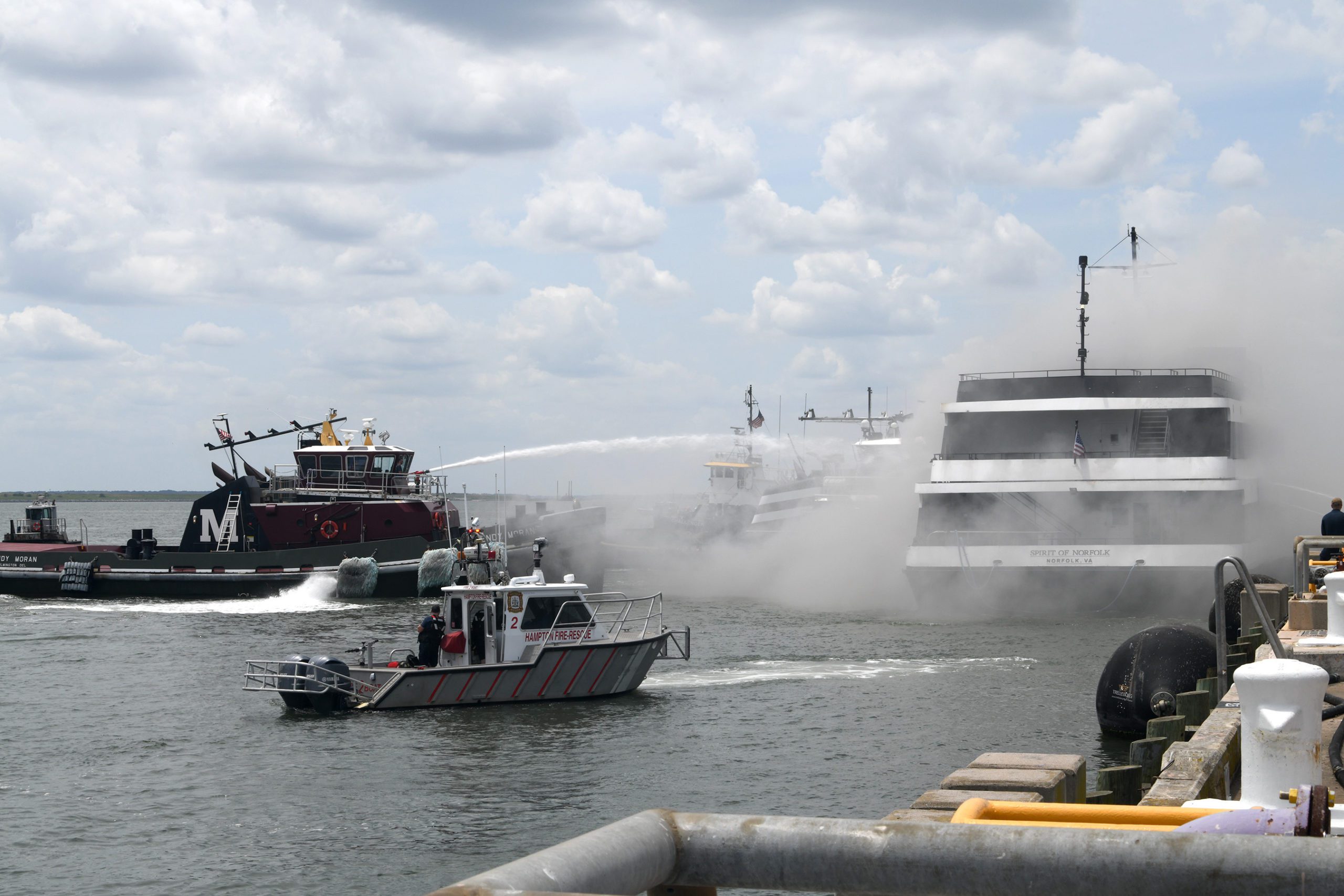The U.S. Coast Guard has issued an interim rule as the first step to implementing the statutorily mandated safety requirements for DUKW amphibious passenger vessels, aka “duck boats.”
The statutory mandate was enacted in response to the sinking of the Stretch Duck 7 on Table Rock Lake, Missouri on July 19, 2018, which resulted in the loss of 17 lives. This interim rule requires additional safety measures for DUKW vessels operating on navigable waters subject to Coast Guard jurisdiction.
Amphibious DUKW boats were initially designed and built in the 1940s for military use during World War II. Some were later converted for commercial passenger service, with the boats becoming staples of tourist destinations throughout the United States under the “Ride the Ducks” brand.
The unique vessels present special challenges to ensure safety, such as requiring greater stability and reserve buoyancy, canopy and seatbelt removal before water operations, and training for crews.. The NTSB first identified safety issues with the vessels in 1999 with the sinking of the Miss Majestic in Hot Springs, Arkansas, with the loss of 13 lives, however recommended corrective actions were never acted on.
The NTSB again made recommendations in 2020 in its report on the Stretch Duck 7 sinking. The investigation found the operator of the boat failed to heed a severe thunderstorm warning before the fatal sinking in said storm. The NTSB also cited the U.S. Coast Guard’s failure to require sufficient reserve buoyancy as contributing to the accident, finding that the duck boat was originally constructed with a low freeboard, an open hull, and no subdivision or flotation.
The James M. Inhofe National Defense Authorization Act for Fiscal Year 2023 (NDAA) required that the U.S. Coast Guard implement interim requirements based on the NTSB recommendations for operators of DUKW boats. NTSB Chair Jennifer Homendy praised the bill for providing “the first meaningful action to improve safety on duck boats in 20 years.” The nine requirements are:
(1) Remove the canopies and any window coverings of such vessels for waterborne operations, or install a canopy that does not restrict horizontal or vertical escape by passengers in the event of flooding or sinking;
(2) If a canopy and window coverings are removed from any such vessel pursuant to paragraph (1), require that all passengers wear a personal flotation device approved by the Coast Guard before the onset of waterborne operations of such vessel;
(3) Reengineer such vessels to permanently close all unnecessary access plugs and reduce all through-hull penetrations to the minimum number and size necessary for operation;
(4) Install independently powered electric bilge pumps that can dewater such vessels at the volume of the largest remaining penetration in order to supplement an operable Higgins pump or a dewatering pump of equivalent or greater capacity;
(5) Install in such vessels not fewer than four independently powered bilge alarms;
(6) Conduct an in-water inspection of any such vessel after each time a through-hull penetration has been removed or uncovered;
(7) Verify the watertight integrity of any such vessel through an in-water inspection at the outset of each waterborne departure;
(8) Install underwater light emitting diode (LED) lights that activate automatically in an emergency; and
(9) Otherwise comply with any other provisions of relevant Coast Guard guidance or instructions in the inspection, configuration, and operation of such vessels.
This interim rule is effective immediately and operators will have 120 days from the date of publication to comply with the requirements.
Unlock Exclusive Insights Today!
Join the gCaptain Club for curated content, insider opinions, and vibrant community discussions.

 Join The Club
Join The Club













